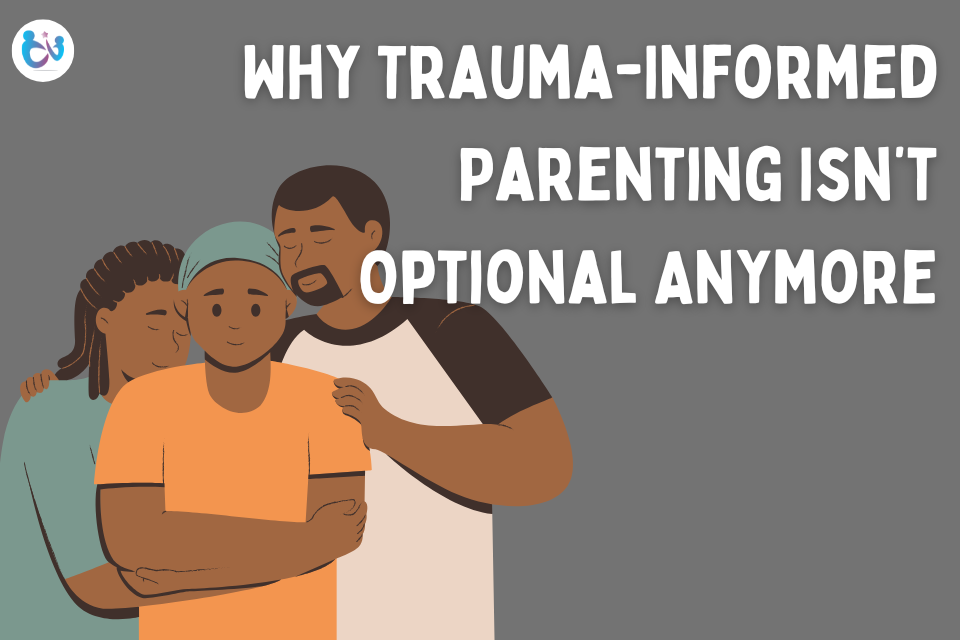Why Trauma-Informed Parenting Isn’t Optional Anymore
June 13, 2025

Parenting today requires more than providing shelter, food, and education. It demands a deeper awareness of what children need to feel safe, heard, and emotionally secure. For many, that means rethinking traditional parenting models and embracing a trauma-informed approach — not as a trend, but as a necessity.
Many children grow up navigating the impact of emotional wounds long before they have the language to describe them. These wounds don’t always come from physical abuse or overt neglect. Sometimes, trauma is the repeated experience of being dismissed, unseen, or misunderstood.
A trauma-informed approach doesn’t ask parents to become psychologists. It asks them to pause, to observe, and to respond with understanding rather than reaction. It invites parents to ask, “What is this behaviour trying to express?” instead of immediately asking, “How do I make it stop?”
Children who act out are often communicating distress the only way they know how. They may not have the words for sadness, fear, or shame, but their nervous systems speak through tantrums, defiance, withdrawal, or constant need for approval.
Without emotional safety, children learn to suppress themselves. They adapt, perform, please, or disappear — just to survive. And they carry these adaptations into adulthood, where they become patterns of anxiety, disconnection, overachievement, or self-abandonment.
Trauma-informed parenting meets children where they are. It says, “I see you, even when you don’t have the words.” It teaches that repair is just as important as discipline — that saying, “I’m sorry I yelled” models accountability better than punishment ever could.
This approach is not permissive. It is deeply structured and responsive. It holds boundaries with kindness, not control. It prioritises connection over compliance. It allows children to experience their full range of emotions without shame.
Many parents are learning to do this without having experienced it themselves. That’s brave work. It’s difficult to give what you never received. But it’s possible. And the impact is generational.
Children raised with emotional safety become adults who can trust, speak up, and navigate discomfort without shutting down. They are more resilient, not because they were hardened, but because they were held.
Parenting is sacred. So is healing. At Emotiontal Assessment and Therapy Centre, we believe it’s never too late to parent differently — to parent gently, firmly, and with the intention of breaking harmful cycles.
If you are a parent, caregiver, or educator seeking to build safety — emotionally, mentally, and relationally — we invite you to begin or continue that journey with us.
